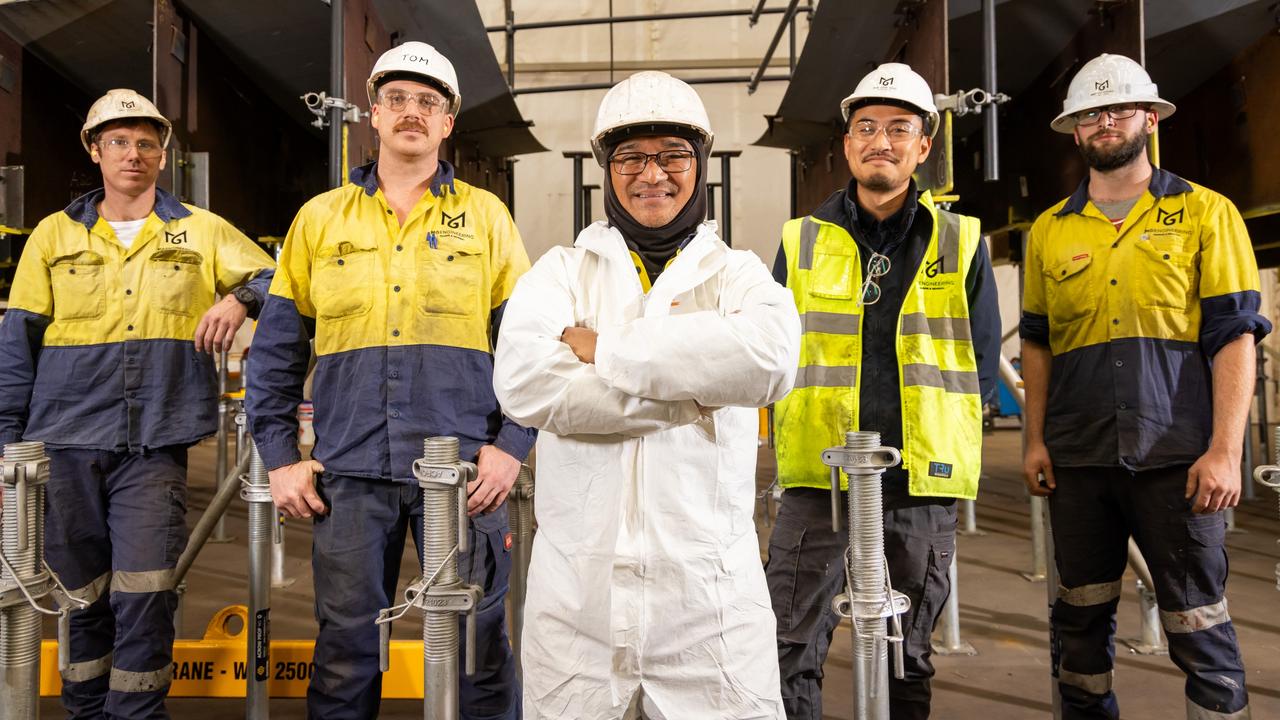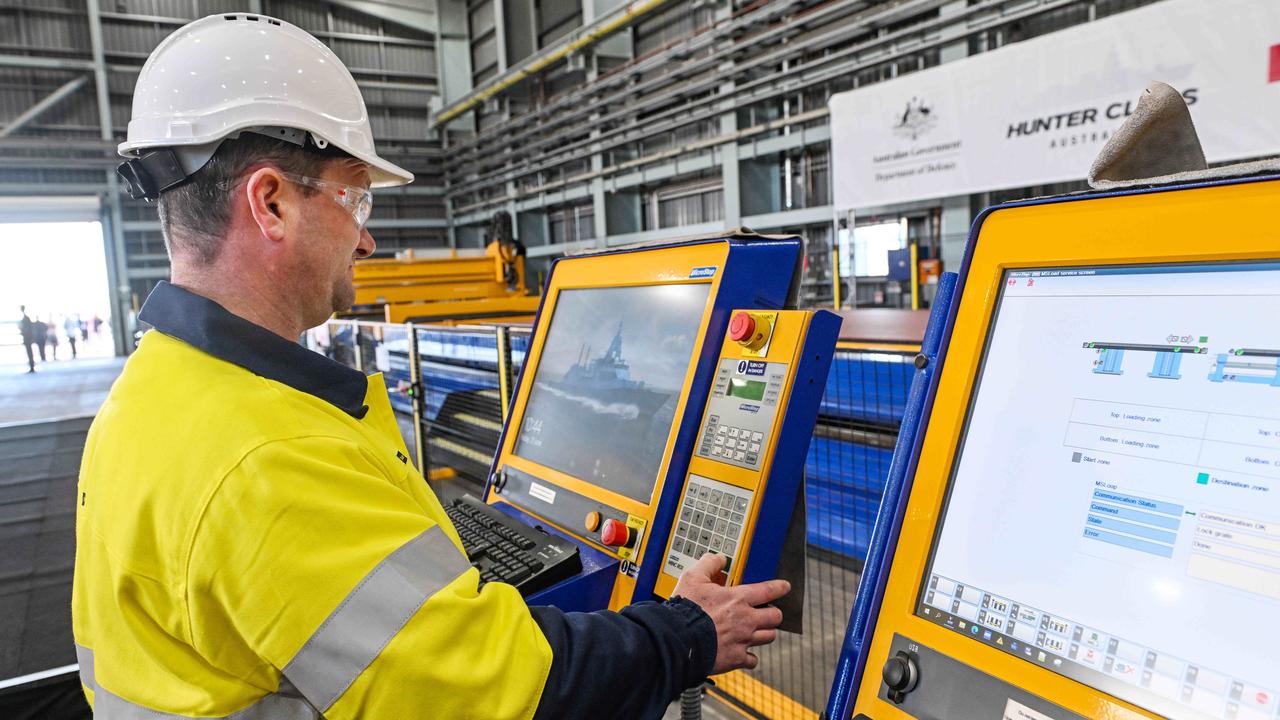BAE expands frigates supplier program with SMEs
Shipbuilder BAE is expanding a key program to recruit more businesses into the supply chain for its $45bn frigates build. Find out how to get involved.

Business
Don't miss out on the headlines from Business. Followed categories will be added to My News.
Defence suppliers will converge on Adelaide this week as BAE Systems Maritime Australia expands a key program to recruit more SMEs into the supply chain for its $45bn Hunter-class frigates program.
BAE is expanding its strategic supplier partnerships program to include more SMEs later this year and into 2026, in a bid to protect its construction schedule for the first of three anti-submarine warships contracted under the Hunter program.
The program is designed to expand its shipbuilding activities beyond the physical confines of the Osborne shipyards, ensuring production continues off-site in other locations when the shipyards are operating at full capacity.
BAE has two strategic supplier partnerships in place with local manufacturers Century Engineering and MG Engineering, where key components for the first ship are being built.
MG Engineering has commenced work constructing components for the first ship blocks at its facility in Port Adelaide, representing the first outsourced products being delivered outside of Osborne as part of the frigates build.

Hunter-class frigate program director Jason Loveday said the success of the two initial partnerships would see BAE commence onboarding additional Australian companies later this year and into 2026 to increase both capacity and capability as the program ramps up.
“Supplying units for the first Hunter-class frigate is a massive undertaking that requires not only technical expertise but also a commitment to meeting deadlines and quality benchmarks,” he said.
“MG Engineering’s status as a strategic supplier is a testament to the capabilities of its people and dedication to ensuring it delivers nothing short of the highest quality.
“In a complex project like this, the ability to manage an efficient, reliable supply chain is vital. We work closely with our suppliers and logistics teams, and we maintain a strong focus on quality control at every step of the process.”
Construction has commenced on 29 of 78 blocks for the first frigate, which is scheduled to be delivered to the Commonwealth in 2032 and become operational in 2034.
BAE said construction of the first ship was tracking on budget and on schedule.
The third and fourth ships will follow on a two-year cycle with expected operational dates in 2036 and 2038.
BAE has already placed more than 80 contracts with Australian industry, including with several SMEs working on-site at Osborne, in areas including blast and painting, insulation, heating, ventilation, and air-conditioning (HVAC), deck coverings, non-destructive testing and habitation.
Construction of up to six Hunter-class frigates will require a workforce of up to 2600 employees, and more than 400 trades will be hired in 2025 as the program ramps up towards its peak.
BAE will host around 150 representatives from 50 supplier companies at a supplier symposium in Adelaide this week, where they will discuss areas of the ship build program including accelerating production of the first ship and safety performance.
MG Engineering managing director Anthony Brdar said the strategic partnership with BAE bolstered his company’s position in the burgeoning defence sector.
“MG Engineering is proud to be a key supplier for the construction of the first of the Hunter anti-submarine frigates,” he said.
“Our team’s commitment to precision and quality has enabled us to achieve this level of support for the Commonwealth’s biggest surface ship program.”
More Coverage
Originally published as BAE expands frigates supplier program with SMEs








